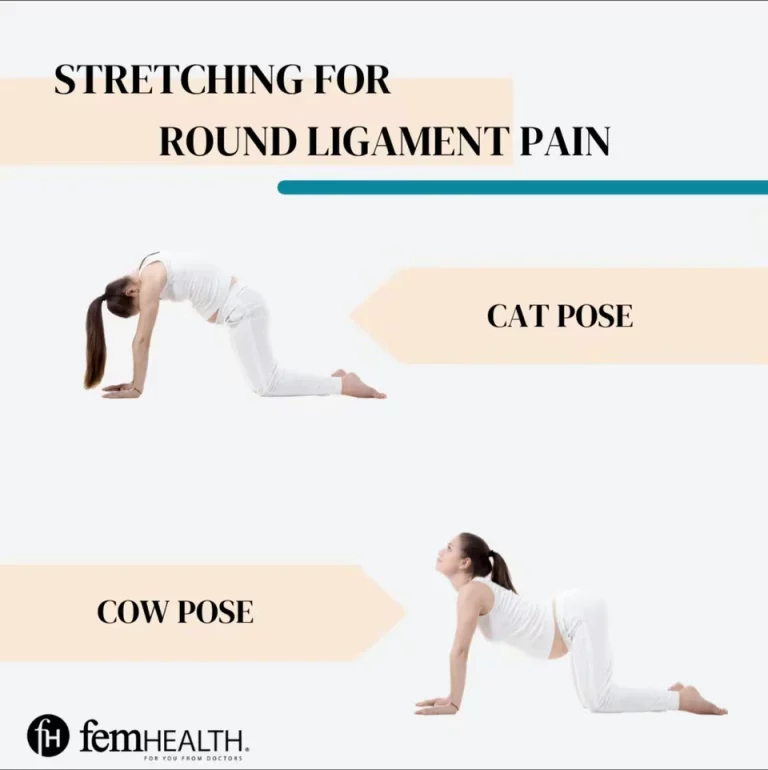Prenatal Gummies: What Every Pregnant Person Needs To Know
Can you take prenatal vitamins in form of gummies? The answer in most cases is yes. The exception to this may be if you are a pregnant person who has been diagnosed with gestational diabetes. If you have GDM or gestational diabetes, then prenatal gummy vitamins may not be the best option for you. A person with GDM will already have to limit their sugar intake, and eating gummies can add unnecessary sugar to your diet. Look for prenatal vitamins with folic acid and also, ideally, a prenatal multivitamin with DHA.
If you are looking for one a day prenatal gummies, it will be nearly impossible to find. In order to pack in all the nutrients that you need as a pregnant person, you will likely need to take 3 to 6 gummies a day. This is why regular prenatal pills are so large. There are a lot of nutrients that need to go into that pill.
Prenatal gummies are a great option if you have a hard time swelling very large pills. Here are our favorite options when it comes to the best prenatal gummies:
Best Tasting Prenatal Gummies
Smarty Pants – Our Top Pick!
Smarty Pants prenatal gummies are great because they are one of the best tasting prenatal gummies out there. For many pregnant women who are already sensitive to tastes and smells, it is important to have an option that tastes good. Taking 4 gummies each day is easy to do and a treat.
This supplement also has DHA which some prenatals do not have. It also has an ample amount of folic acid, also known as folate, which may help prevent neural tube defects. Pregnant people need 600 micrograms of folic acid everyday. Your prenatal vitamin should have at least 400 micrograms.
Best Prenatal Gummies Supplement For Dietary Restrictions
Lunakai
For expectant mothers following a vegan diet, it can be challenging to find a prenatal supplement that works for them. The Lunakai prenatal gummy has 800 mcg of folic acid, also has DHA, and also tastes great. An additional benefit is that they are great for individuals who have one or more dietary restrictions. These prenatal gummies are non-GMO, gelatin free, vegetarian, gluten free, soy free, and corn free.
Other Popular Prenatal Gummies
Natalist
The Natalist prenatal gummy also has a great vitamin profile containing enough folic acid and also has DHA.
Enfamom
Enfamom prenatal gummies are also an option. The Enfamom prenatal gummy is made by the same brand that makes Enfamil formula.
Remember that, in addition to taking a prenatal during pregnancy, it is also important to start taking a prenatal vitamin with folic acid while you are trying to conceive. Most women will not realize they are pregnant until they are several weeks into the pregnancy. The risk for having neural tube defects is lessened by taking a prenatal with folic acid, and this is most critical in these 12 weeks of a pregnancy. There is also some evidence to show that for moms who continued with folic acid supplementation in the second and third trimesters, there was a cognitive benefit for their child. More studies are needed in this area.
Essential Nutrients & Essential Vitamins In Prenatal Gummies
Most doctors recommend a well-rounded prenatal vitamin while you are trying to conceive, during pregnancy and during breastfeeding.
Prenatal vitamins typically contain higher amounts of specific nutrients that are particularly important for a healthy pregnancy. These include:
- Folic acid: Prenatal vitamins contain higher levels of folic acid, which is important for preventing birth defects of the baby’s brain and spine.
- Iron: Pregnancy increases the body’s need for iron, as it is essential for the development of red blood cells. Prenatal vitamins contain more iron than regular multivitamins to help prevent anemia.
- Calcium: Prenatal vitamins often contain more calcium, which is important for the baby’s developing bones and teeth.
- Vitamin D: Prenatal vitamins may contain more vitamin D, which helps the body absorb calcium and also plays a role in the baby’s bone growth.
- Iodine: Prenatal vitamins often contain more iodine, which is important for the baby’s brain development.
- Omega-3 fatty acids: Some prenatal vitamins contain omega-3 fatty acids, which are important for the baby’s brain and eye development.
Overall, while regular multivitamins can provide some of these nutrients, prenatal vitamins are specifically designed to meet the increased nutritional needs of pregnant women and their growing babies.
Preventing Birth Defects
Folic acid is probably the most important nutrient in preventing certain types of birth defects, particularly neural tube defects, which affect the baby’s brain and spinal cord. Folate is a B vitamin that plays a key role in the development of the neural tube. A deficiency in folate during pregnancy has been linked to an increased risk of spina bifida.
Folate Vs Folic Acid
Folate and folic acid are both forms of vitamin B9, which is essential for many important functions in the body, including the development of the nervous system and the formation of red blood cells.
Folate is the natural form of vitamin B9 that is found in foods such as leafy green vegetables, beans, and citrus fruits. Folate is absorbed by the body and converted into a form that can be used by cells in a process that requires the presence of certain enzymes.
Folic acid, on the other hand, is a synthetic form of vitamin B9 that is often used in supplements and fortified foods. Folic acid is more stable than folate and is more easily absorbed by the body, which makes it a more efficient source of vitamin B9 than dietary folate.
Both folate and folic acid are important for preventing birth defects such as spina bifida, and the terms are often used interchangeably. However, it’s important to note that some people may have difficulty converting dietary folate into its active form, and in these cases, folic acid supplementation may be recommended to ensure adequate intake of vitamin B9.
Women who are trying to conceive or who are pregnant are recommended to take a daily supplement of at least 400-800 micrograms of folic acid.
B Vitamins
Related: Round Ligament Pain In Pregnancy
Vitamin deficiencies during pregnancy can lead to a range of birth defects, some of which are more common than others. Here are some examples:
- Neural tube defects: A deficiency in folic acid during pregnancy (vitamin B9) is one of the most common causes of neural tube defects, such as spina bifida and anencephaly.
- Cleft lip and palate: A deficiency in vitamin B6 and folate has been linked to an increased risk of cleft lip and palate, which are birth defects that affect the baby’s face and mouth.
- Congenital heart defects: A deficiency in vitamin B12 during pregnancy has been linked to an increased risk of congenital heart defects, which are structural problems with the heart that are present at birth.
Vitamin A
- Limb defects: A deficiency in vitamin A during pregnancy has been associated with an increased risk of limb defects, such as missing fingers or toes.
- Eye defects: A deficiency in vitamin A during pregnancy can also increase the risk of eye defects, such as cataracts and blindness.
It’s important to note that vitamin deficiencies during pregnancy are not the only cause of these birth defects, and not all babies born to mothers with vitamin deficiencies will have these problems. However, maintaining adequate vitamin intake during pregnancy is important for the healthy development of the baby and can help reduce the risk of birth defects. Women who are pregnant or planning to become pregnant should talk to their healthcare provider about their specific nutritional needs and any supplements they should be taking.
Balancing DHA And Mercury
DHA is good for pregnancy and mercury is not, but they generally come from similar dietary sources. DHA is an omega-3 fatty acid that is found in high concentrations in the brain and retina of the eye.
During pregnancy, the demand for DHA increases as the baby’s brain and nervous system develop rapidly. Adequate levels of DHA are necessary for the growth and function of these organs.
Studies have shown that pregnant women who consume higher amounts of DHA have babies with better cognitive and visual development than those who consume lower amounts. Additionally, low levels of DHA during pregnancy have been linked to an increased risk of preterm birth and postpartum depression.
Mercury is a toxic heavy metal that can be found in certain types of fish, including swordfish, shark, king mackerel, and tilefish. These fish are at the top of the food chain and can accumulate high levels of mercury in their tissues.
It’s important to note that not all types of fish contain high levels of mercury, and some fish are actually beneficial during pregnancy due to their high levels of omega-3 fatty acids, which are important for the baby’s brain and eye development. Pregnant women should aim to consume 2-3 servings of low-mercury fish per week, such as salmon, sardines, trout, and canned light tuna.
Good Nutrition
Taking prenatal gummies does not substitute for good nutrition. It is important for pregnant women to eat a healthy and well balanced diet. Healthy food sources are a great way to get the recommended amount of essential nutrients. However, this can be difficult to keep track of so a prenatal gummy vitamin can be a helpful and tasty supplement.
If you are using prenatal gummies be sure that you are not at risk for gestational diabetes or that you do not have gestational diabetes. Eating healthy meals that have low to moderate sugar as well as staying active may lower your risk of gestational diabetes.
Prenatal Gummies: Summary
If you don’t like swelling huge pills, taking prenatal gummies may be a good option for you before and during pregnancy. The best prenatal vitamin is one that works for you and is one and has all the essential nutrients and vitamins for ensuring a healthy pregnancy. If you have or are at risk for Gestational Diabetes, talk to your doctor about prenatal gummies as these may add too much sugar to your diet. Remember to always evaluate the ingredients and nutrients in any supplement and show it to your doctor if you have any questions.
Sources:
Chitayat D, Matsui D, Amitai Y, Kennedy D, Vohra S, Rieder M, Koren G. Folic acid supplementation for pregnant women and those planning pregnancy: 2015 update. J Clin Pharmacol. 2016 Feb;56(2):170-5. doi: 10.1002/jcph.616. Epub 2015 Nov 5. PMID: 26272218; PMCID: PMC4738404.
https://pubmed.ncbi.nlm.nih.gov/26272218/
McNulty H, Rollins M, Cassidy T, Caffrey A, Marshall B, Dornan J, McLaughlin M, McNulty BA, Ward M, Strain JJ, Molloy AM, Lees-Murdock DJ, Walsh CP, Pentieva K. Effect of continued folic acid supplementation beyond the first trimester of pregnancy on cognitive performance in the child: a follow-up study from a randomized controlled trial (FASSTT Offspring Trial). BMC Med. 2019 Oct 31;17(1):196. doi: 10.1186/s12916-019-1432-4. PMID: 31672132; PMCID: PMC6823954.
https://pubmed.ncbi.nlm.nih.gov/31672132/
Cheatham CL. Nutritional Factors in Fetal and Infant Brain Development. Ann Nutr Metab. 2019;75 Suppl 1:20-32. doi: 10.1159/000508052. Epub 2020 Jun 19. PMID: 32564018.
https://pubmed.ncbi.nlm.nih.gov/32564018/
We discuss products we think are useful to people. If you buy something through our links, we may earn a commission. Remember to check with your personal physician to see if a product recommended is right for you.








